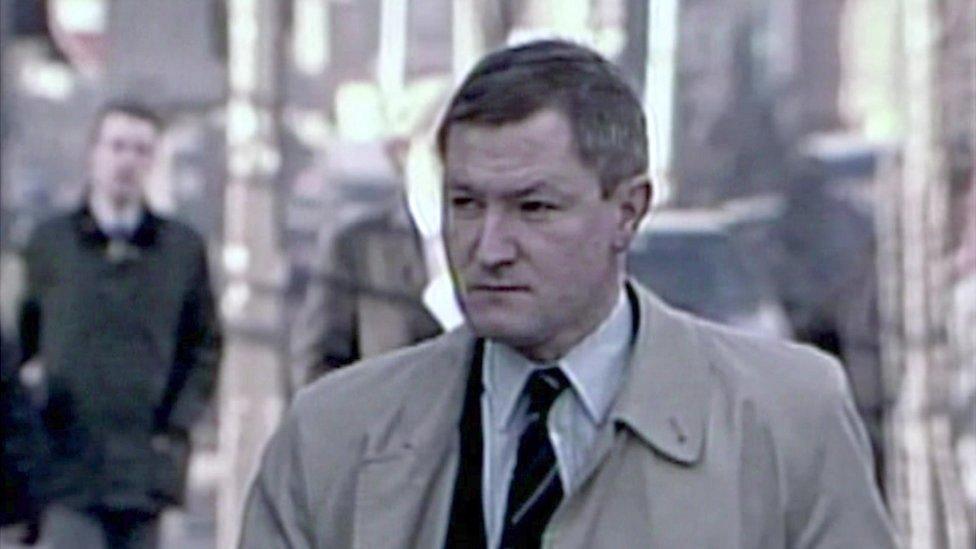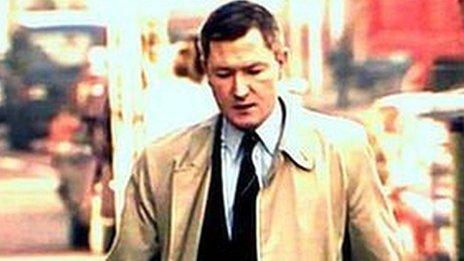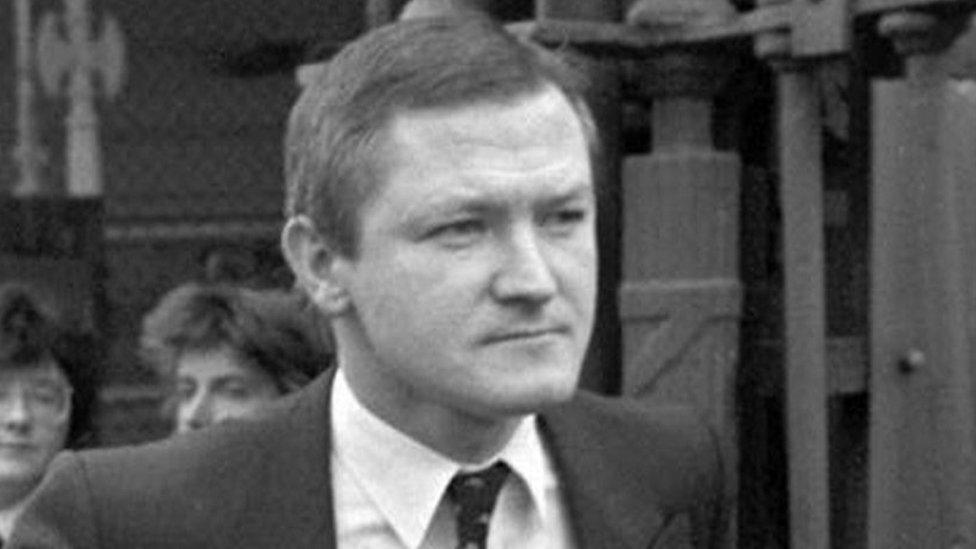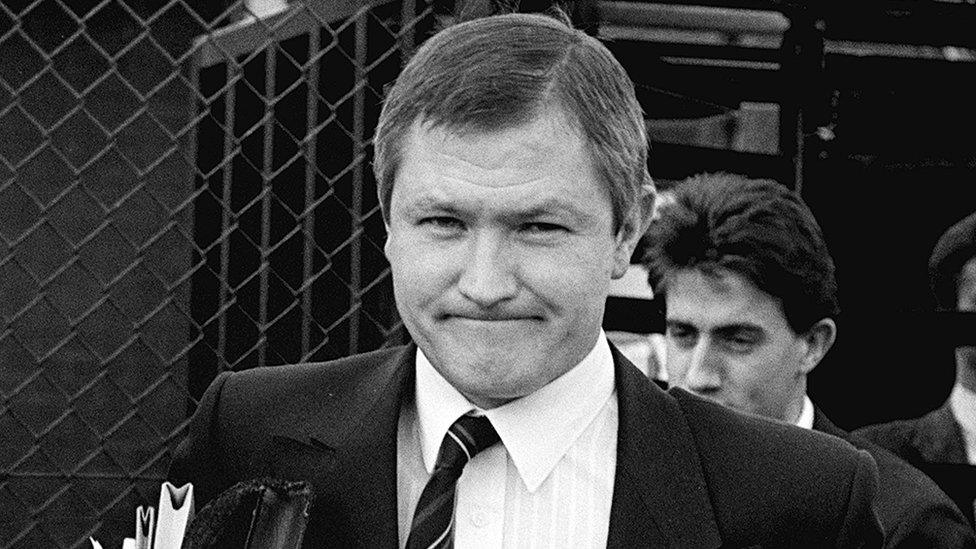Pat Finucane: Government decision due on inquiry
- Published

Belfast solicitor Pat Finucane was murdered by loyalist paramilitaries in front of his wife and children in 1989
The government is expected to announce later if it will order a public inquiry into what has become one of the most notorious murders of the Troubles.
Solicitor Pat Finucane was shot dead by loyalist paramilitaries from the Ulster Defence Association (UDA) in 1989.
His family has fought a long campaign, involving numerous legal actions, in a bid to have London fulfil a commitment given 20 years ago to hold an inquiry.
Several examinations of the case found state forces colluded in his murder.
Northern Ireland Secretary Brandon Lewis is due to make an announcement after contacting Mr Finucane's family.
The virtual meeting was due to take place at 12:00 GMT, but was delayed until 16:00, after which Mr Lewis is due to make a statement to parliament.
The government has been forced into a decision by two legal actions - one involving the UK Supreme Court in February last year.
It found there had never been an adequate investigation into the murder, but stopped short of directing a public inquiry, ruling it was entirely a matter for the government.
After more than a year passed, Mr Finucane's widow, Geraldine, launched legal action to force a response.

Geraldine Finucane leaving an earlier court hearing with her son John, who is now MP for North Belfast
A public inquiry is supported by the Irish government, Labour and four Northern Ireland political parties - Sinn Féin, the SDLP, Alliance and the Green Party.
On Monday, Irish Foreign Affairs Minister Simon Coveney said the UK government's decision on whether to hold a public inquiry would signal if it was fully committed to truth and reconciliation.
Speaking on Radio Ulster's Good Morning Ulster programme, Mr Coveney said an inquiry would represent a "big step forward" in trying to address the pain of the past.
Two agents
During his career, Mr Finucane acted for loyalists and republicans - many of them high-profile cases involving the IRA.
The claim made by his killers, that he was a member of the IRA himself, was rejected by the police and strongly denied by his family.
The 39-year-old was shot 14 times by two gunmen who burst into his north Belfast home during a family dinner in February 1989.
Later it emerged two agents within the UDA, one working for the Army, the other for the police, had played a key role in targeting Mr Finucane and supplying one of the guns.
Investigations also found MI5 ignored threat intelligence and justice was obstructed.
To date, only two people have been charged over Mr Finucane's murder.
In 1999, former UDA member William Stobie, who was also a police agent, admitted supplying a weapon used in the killing but he denied murder.
The case against him collapsed two years later because a key witness refused to give evidence. Weeks later, Mr Stobie was shot dead by loyalists.

William Stobie leaving court in 2001, after the case against him collapsed
In 2004 loyalist Ken Barrett, who drove the getaway car for Mr Finucane's killers, was convicted of murder and given a 22-year sentence.
Barrett served less than three years before being released early under the terms of the Good Friday Agreement, external.
'No over-arching state conspiracy'
In 2012, then Prime Minister David Cameron apologised for "frankly shocking levels of collusion".
After changing course on a 2001 commitment to a public inquiry, Mr Cameron had ordered an independent review of the case by lawyer Sir Desmond de Silva.
Sir Desmond's report agreed there was collusion in Mr Finucane's killing, external and it found "employees of the state actively furthered and facilitated his murder".
"My review of the evidence relating to Patrick Finucane's case has left me in no doubt that agents of the state were involved in carrying out serious violations of human rights up to and including murder," the 2012 report stated.
Sir Desmond concluded one or more police officers from the Royal Ulster Constabulary (RUC) proposed Mr Finucane as a UDA "target" and passed information to his loyalist paramilitary killers.

Pat Finucane represented clients from both republican and loyalist backgrounds
He also said the RUC failed to stop the attack and then obstructed the murder investigation.
However, Sir Desmond's review of existing documents in the case found there was "no over-arching state conspiracy" in Mr Finucane's murder.
Mr Finucane's family did not engage with the de Silva review and dismissed the exercise as a "whitewash" which had uncovered little new information.
They have claimed that collusion went to the top of government and maintain only a public inquiry can bring full disclosure.
- Published7 October 2019

- Published26 November 2020

- Published9 October 2020
